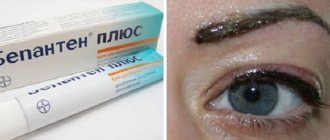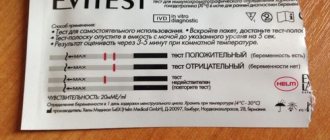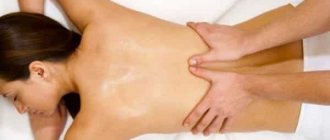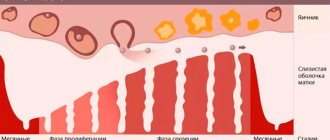In pursuit of beauty, women have learned to resort to a variety of tricks. One of these tricks is permanent makeup, better known as tattooing. It is applied to mimic regular makeup but lasts up to five years. Such a long service life is due to the fact that a special organic-based paint is introduced under the skin. In fact, we are talking about the same tattoo, which is performed for decorative purposes.
With the growing popularity of this procedure, questions began to arise about whether it is possible to get a tattoo during menstruation. Perhaps it is worth waiting until the end of menstruation or does it not play a big role? Let's figure out what health hazards the tattoo procedure poses at the beginning of the female cycle.
The most common misconceptions about tattooing during menstruation
Most of the fair sex, who have at least once had eyelash extensions, nails or cosmetic services done, are deeply convinced that all procedures cannot be performed during menstruation. They probably read about this either on the Internet or heard from masters. However, once she takes the risk of having her nails extended during her period, every woman understands that the result is no different from what is obtained if they are extended at another time. And all because the danger of carrying out any cosmetic procedure during menstruation is nothing more than a myth. It’s the same story with tattooing of eyebrows, lips or eyelids during menstruation. Many women are afraid that having it done during this period will:
- It is very painful due to a decrease in the pain threshold, worse effect of the anesthetic, etc.;
- A terrible result: the pigment sediment will settle partially, with gaps or not at all; the firmness and elasticity of the skin will change; the composition of the blood will change;
- There will be a risk of catching a virus due to reduced immunity;
- A completely different pigment color results due to changes in hormonal levels.
There are a huge number of such misconceptions and sometimes they cross reasonable boundaries. One day a woman called us and asked whether it was possible to tattoo eyebrows during menstruation and whether it would be more difficult for the artist to carry out the procedure due to excessive bleeding when the skin is injured. We had to convince the woman that this was just an unjustified myth. Fortunately, this story has a good ending and everything turned out great. No less misconceptions arise about tattooing on the eve of menstruation. The most common is related to the final color of permanent makeup. Allegedly, against the background of hormonal changes, the color can migrate and become completely unpredictable. This is only possible in two cases: if the pigment was introduced very deeply and if a black pigment was used. Only in these situations is migration to a different shade possible, but not due to hormonal changes in the female body.
Reviews
User reviews and the opinions of cosmetologists and doctors on this issue coincide almost 100%. Exceptions are rare.
Alexandra, 28 years old:
You can't get a tattoo during your period. And not even because it hurts a lot, but because during menstruation the level of leukocytes in the blood decreases, that is, the immune system is weakened. But tattooing is still a puncture of the skin. Let it be shallow. There is always a risk of infection, and during menstruation it increases noticeably.
Marina, 33 years old:
During critical days or after an illness, the body is simply weakened and cannot fight infections. Even a simple scratch takes longer to heal and is more disturbing. A tattoo is quite a serious test. It's not worth the risk.
Lyudmila, 35 years old:
During registration, any invasive manipulations are not permitted. Even operations are performed only for health reasons. And tattooing, although a cosmetic procedure, is still quite painful and greatly irritates even healthy skin. In addition, swelling greatly interferes, even if they are not visually visible; when piercing, swelling is felt and the result may not be at all what was expected.
Is it possible to tattoo eyebrows, eyelids or lips during menstruation? In principle, this is possible; menstruation is not a direct contraindication. However, increased sensitivity and poor blood clotting make this period completely unsuitable for permanent makeup.
See also: Is it worth getting eyebrow tattooing (video)
How is permanent makeup done?
To understand whether tattooing can be done on menstruation days, you need to have an idea of how the procedure is performed. The required effect is achieved through the subcutaneous injection of microparticles of paint. To do this, the tissues are pierced with a special device. To relieve a woman of the painful sensations that often accompany the procedure, the specialist can use local anesthesia.
The desired effect cannot be achieved in one procedure. After 1-1.5 months, correction is carried out to correct inaccuracies, eliminate defects and give the paints optimal brightness. The result of this process will last from 1 to 3 years.
It must be taken into account that if you don’t like something, it is very difficult to disguise it with decorative means. That is why the quality that the master achieves through careful work is so important. The manipulation takes a lot of time: tattooing lips and eyebrows will take about 2 hours.
Having understood how the procedure proceeds, it becomes clear to some whether it is possible to do permanent makeup during menstruation or not.
What is tattooing and what are the common areas of application?
Tattooing is also commonly called permanent makeup. The procedure is improved every year. Previously, during manipulation, paints were introduced as when applying a tattoo, and the design remained for a long period of time and gradually changed color to an unattractive one, for example, bluish.
Modern tattooing techniques allow you to achieve the most natural effect. The color may completely disappear from the skin after just a few years.
The benefits of tattooing are the ability to correct imperfections or hide existing skin defects. The girl no longer needs to apply makeup every day. The main areas of application of the procedure are presented in the table.
The process of applying makeup is very similar to the procedure for drawing a real tattoo. Paint elements are introduced under the skin. The procedure is painful. That is why painkillers in the form of a gel are used during manipulation.
A positive result can last up to 5 years. Usually you need to visit the procedure twice with a break of a month to get the desired shade.
It is important to give preference only to proven professionals. Sometimes the only way to deal with poor-quality results is laser removal. It is better not to skimp on manipulations.
It is important to choose the right specialist
Contraindications to the procedure
Many girls mistakenly consider tattooing to be a simple procedure, believing that it does not have any restrictions. And some don’t even bother with special care after tattooing their eyebrows, lips or eyes. Only with the appearance of inflamed areas on the skin do these young ladies still think about how safe this cosmetic procedure is and whether it is possible to perform permanent makeup during menstruation.
Meanwhile, experts cite a number of points when it is better not to perform this manipulation. Therefore, it is very important to study all the information related to the procedure before going to a beauty salon, so that you are fully prepared and do not wait for a warning from the specialist.
Permanent makeup has a number of contraindications, including:
- decreased blood clotting or predisposition to this disease;
- pregnancy and breastfeeding;
- various oncological processes and the presence of neoplasms;
- presence of diabetes mellitus (the insulin-dependent form is the most dangerous);
- viral infection and inflammatory diseases;
- skin diseases and injured areas in the eyebrow area;
- predisposition to allergies;
- nervous or mental disorders;
- alcohol intoxication;
- period of critical days (some artists advise refraining from tattooing even a week before your period);
- taking certain medications (eg, antibiotics, aspirin).
If at least one of the factors is present, the visit to the specialist will have to be postponed. It does not hurt to first consult with a doctor about the possibility of manipulation. And also listen to the recommendations of the master.
Is it possible to tattoo eyes with eyelash extensions?
The presence of eyelash extensions is not a contraindication for applying permanent makeup. But still, competent specialists advise removing them 5–7 days before the procedure. Eyelash extensions can affect the quality of pigment application, leaving untreated spaces, which will worsen the appearance of the work. Also, the master may accidentally touch the hairs, ruining their structure. Eyelash extensions can be reapplied after the procedure is completed. Still, it is better to prepare for eye tattooing - remove artificial eyelashes in advance and do not curl them for a couple of days before the procedure.
Eyelash extensions should be done 10–15 days after the procedure for applying permanent eye makeup. During this time, the eyelids will heal.
Why is this procedure performed?
Eyebrow tattooing is recommended in the following situations:
- unsightly growth of hairs, poor density, there are bald patches;
- not satisfied with the color or shade;
- the desire to change the shape of the eyebrows - correct the tails, thickness, draw sparse areas;
- there is no time to draw them every day;
- in order to save money on decorative cosmetics;
- hiding external defects or emphasizing positive qualities.
High-quality work directly depends on the competence of the master. A good specialist will select the best pigment and application technique.
The main methods of painting are hair and powder spraying, and the remaining options are hybrid. Using a special machine or manually, a dye is introduced that stays on the skin for several years with proper care.
List of contraindications for the procedure
Permanent application of pigment is not a harmless procedure due to a sufficient list of contraindications. Before visiting a tattoo salon, it is recommended that you familiarize yourself with the list of absolute prohibitions:
- HIV or AIDS, hepatitis C. These diseases are transmitted through contact with the bodily fluids of a sick person. When visiting a cosmetologist with such diagnoses, the risk of not only worsening the current state of health increases, but also infecting a potentially healthy person.
- Oncological diseases, malignant or unidentified tumors. During this period, a woman’s immune system is overly suppressed, all organs and systems of the body suffer as they fight the tumor. Unforeseen intervention in the skin can increase the development of cancer or cause metastases. During the acute period, tattooing eyebrows or any other part of the face is prohibited. Application of pigment is possible only during the period of remission with written permission from the attending physician.
- Reduced blood clotting. With its increased fluidity, the degree of pigment absorption by the skin significantly deteriorates, which negatively affects the quality of the work done. Firstly, it will be difficult for the master to record the drawn result. Secondly, the paint flows out and does not stay in the epidermis layer.
- The period of pregnancy and breastfeeding. During the first trimester, the formation of fetal organs occurs, and the slightest intervention in a woman’s body is fraught with consequences. The second and third trimester - the risk of miscarriage or premature birth due to pain, which can provoke increased uterine contractions. During lactation, a woman’s body behaves unpredictably in relation to pigments, so the final result of the permanent is often unknown. There is a risk of incomplete painting or accelerated leaching of paint from the skin.
- Diabetes mellitus is accompanied by an increased decrease in the body's defenses. Tattooing also temporarily reduces immunity. The combination of this disease with a cosmetic procedure is fraught with deterioration in health.
The list of relative contraindications includes:
- respiratory diseases, flu;
- critical days;
- general malaise;
- tendency to high blood pressure.
The procedures are not recommended for the reasons stated above.
However, there are situations when women had tattooing during menstruation or a cold, and it passed without consequences for them.
What are the contraindications
Menstruation is not the only contraindication. Restrictions also include:
- malignant neoplasms;
- the presence of moles at the place where the drawing was applied;
- increased body temperature;
- AIDS virus;
- hepatitis;
You can't get a tattoo during pregnancy
- the period of bearing a child and breastfeeding the baby;
- impaired blood clotting;
- tendency to scarring;
- some chronic diseases;
- respiratory diseases; mental disorders.
If there are contraindications, the master is forced to refuse to perform the procedure.
Why you can’t get a tattoo during your critical days
The female body is subject to cyclical changes; during menstruation it is especially sensitive.
Reasons for the ban on combining tattooing and menstrual periods:
- changes in the level of estrogen, progesterone;
- decreased immunity;
- pain receptors become more acute.
The master does not guarantee a positive result or the absence of negative consequences for the body when applying tattooing during critical days.
During menstruation, the work of the sebaceous glands increases, the elasticity of the skin decreases. Applying a permanent at this time can lead to complications - the appearance of scars and depigmented areas.
Scientists note changes in blood composition and coagulation during menstruation. This leads to prolonged healing of wounds after tattooing and increased bleeding. The process of inserting a needle increases the risk of infection.
Pain
Do you need advice from a beauty expert? Get advice from a beauty expert online. Ask your question right now.
This is not a myth: the pain threshold during menstruation decreases, which does not allow the tattooing procedure to be performed efficiently. Under the influence of hormonal imbalance, the effect of painkillers may be distorted. Clients will experience discomfort even with anesthesia. Studies have shown noticeable changes in a woman’s hormonal levels during menstruation. Progesterone and estrogen sharply decrease, and the level of pain mediators - prostaglandin, histamine in the blood - increases.
Performing permanent makeup on critical days increases the risk of painful shock. This is one of the reasons why tattooing should not be done during menstruation. Particularly painful are the areas of the lips, interciliary space, and eyelids. Permanent eyebrow makeup brings less discomfort.
At the beginning of the cycle, pain receptors react acutely to external stimuli. This increases the pain when correcting the shape by plucking with tweezers.
It is prohibited to make a tattoo on critical days using the invasive technique of introducing pigment with piercing the upper layers of the skin.
Skin healing
When performing a tattoo procedure during menstruation, the healing period lasts longer, the crusts are loose and easily injured. There is a release of droplets of blood from the damaged areas for several days. This is due to a disruption in the formation of erythrocytes and leukocytes; coagulation worsens during menstruation. You cannot remove dried layers - this can cause bleeding, discoloration of pigmentation, and the development of scar tissue.
Slowing down the healing process is facilitated by:
- decreased level of leukocytes in the blood due to ongoing bleeding during menstruation. This helps to reduce immunity, wounds from tattooing become unprotected from infection, and suppuration forms;
- Taking painkillers from the group of non-steroidal anti-inflammatory drugs during menstruation worsens blood clotting. The rate of wound healing after the procedure decreases, the dye mixes with the liquid, causing an allergic reaction and inflammation;
- the quality of the injected pigment affects the healing rate. With an aggressive composition, the tissues remain in a suppurative state longer.
During menstruation, all the forces of the body are occupied with the process of renewal at the hormonal level. With external interventions required by tattooing, the reaction can be unpredictable.
Impact on the result of the procedure
Clients often complain about inappropriate outcomes. If a cosmetic session was carried out during menstruation, a different color appears, and the coloring effect after tattooing quickly disappears. Instead of several years of lasting results, the pigment may disappear in 3-4 months. The changes are associated with manipulations during menstruation.
Reasons for refusing the procedure
Women who have undergone a similar procedure at least once do not need to explain why tattooing should not be done during menstruation. Beginners in this matter need to familiarize themselves with all possible complications and consequences.
Pain
At the beginning of the menstrual cycle, the body produces special substances. They force the uterus to contract vigorously in order to quickly remove the rejected endometrium. But prostaglandins overexcite nociceptors, which increases the sensitivity of the skin.
The pain is strongest when applied to the lips and areas near them, because this is where the largest number of receptors are noted. The sensations when working on eyebrows are more tolerable, but there were situations when clients lost consciousness during microblading due to menstruation. And anesthesia (gels, etc.) may be ineffective due to changes in hormonal levels during menstrual flow.
Risk of bleeding
The work occurs with damage to microvessels. With good blood clotting, a woman recovers faster after the pigment is introduced into the skin. With menstrual flow, the functioning of the hemostatic system worsens. And this negatively affects:
- on the rate of skin healing;
- on the quality of the specialist’s work result.
The result is irritation of the skin, crusts and unattractive dents after they fall off. And also, against the background of abundant blood in the affected areas, it will be more difficult for the master to draw an exact contour.
Probability of inflammation
Skin rashes are a consequence of clogged and inflamed pores. Before menstruation, progesterone predominates. This hormone causes increased production of not only subcutaneous fat, but also secretory fluid. Skin problems in the work area are a direct contraindication for tattooing both before menstruation and on any other day of the cycle.
Inflammation may also occur several days after the procedure. And the problem is not the technician’s mistakes, which can lead to infection. Even clean instruments and adherence to technology do not protect against subsequent penetration of bacteria through damage in the epidermis. The reason lies in a decrease in the volume of immune cells, which are not enough to provide protection.
Tattoo quality and allergies
It may not be possible to apply precise and beautiful makeup. The same goes for regular tattoos. At the beginning of the cycle, the lack of sex hormones directly affects how the body perceives paint. Several options are possible:
- color too dull;
- very bright shade;
- uneven tattooing;
- severe allergies.
The same goes for changing your hair color. According to hairdressers, you should not dye your hair during menstruation due to the risk of the listed shortcomings.
Probability of defects
Another reason not to get tattoos during menstruation or to refuse tattooing is increased swelling during menstrual periods. A large amount of fluid accumulates in the face area, and not just in the limbs. Therefore, the quality of makeup decreases, and the problem may manifest itself in the following:
- asymmetry of arrows, eyebrows, lip contour;
- unnatural nature of the tattoo;
- unexpected shade;
- uneven lines;
- spotty coloring.
To eliminate defects, a repeat procedure will be required. But sometimes paint errors cannot be corrected.
Other possible complications
According to experts, manipulation should not be carried out during menstruation; it is better to wait until it ends. Such advice is associated with a high risk of developing the following serious complications:
- a decrease in the effect of the anesthetics used, which is why the woman will feel more pain;
- obtaining a different intensity or tone of pigment than was planned;
- the skin may not accept the dye, completely rejecting it;
- A woman's mood is changeable, so the result may not satisfy the client.
Experts recommend that women wait until a week has passed after their period ends. By this time, the body will have fully recovered and will be able to easily cope with such exposure. This applies to immune protection, blood clotting indicators, pain threshold, and decreased sensitivity of the skin surface. Therefore, when planning a visit to a cosmetologist, you need to take into account the characteristics of your own menstrual cycle.
Eyebrow tattooing during menstruation - possible consequences
Experts are divided on this issue. Some do not want to accept a client with menstrual periods, while others do not see this as a problem. Nevertheless, consequences cannot be ruled out, even if the girl tolerates the “red day of the calendar” well. You may encounter the following difficulties when performing work:
- The painkiller does not work as well, which increases discomfort during the session. If you twitch too much, the artist will draw your eyebrows crookedly and will have to be redone.
- The pigment is not absorbed evenly during healing, the pattern appears in spots or uneven color. Reworking the application is more expensive and often carries consequences in the form of keloid scarring.
- In the first days of the menstrual cycle, increased physiological bleeding occurs. This protects the body from the accumulation of blood in the uterine cavity (fraught with the appearance of hematometra). In this state, the paint is absorbed worse, and it is also inconvenient for the artist to apply the pigment.
- If your physical or psychological condition is unstable, the procedure is less well tolerated.
It is best to conduct a session in the middle of the cycle, when bleeding is still far away and it ended a week ago. During ovulation, the female body best tolerates loads of this kind.
Causes of side effects after tattooing during menstruation
By its nature, tattooing is the same serious intervention as surgery - the master punctures the upper layer of skin with a thin needle of a special device, which is why consultation with a specialist on this issue is mandatory. After all, one of the contraindications to creating such permanent makeup is the menstrual cycle.
It is not uncommon for artists to refuse to re-correct or tattoo their clients during their periods.
On critical days, the body of any woman experiences severe stress, as the level of hormones changes sharply, immunity decreases, and the general condition worsens. He becomes weakly susceptible to any procedures, as a result of which their effectiveness during this period sharply deteriorates. Therefore, the result of cosmetic procedures, including tattooing, is often unsatisfactory, and clients remain dissatisfied.
The influence of menstruation
Menstruation itself is part of the menstrual cycle, during which the maturation of the egg occurs. At this time, an endothermic layer is formed in the uterus. If fertilization does not occur during the cycle, this layer turns out to be unnecessary and is rejected. The washing out of the layer along with some blood constitutes menstruation.
The cycle is regulated by the hormonal system. The main ones of these hormones are luteinizing and follicle-stimulating. They are produced by the pituitary gland and, in turn, affect the level of hormones synthesized by the ovaries - estrogen and progesterone. The amount of hormones changes significantly in different phases of the cycle.
- Follicular – the first days of menstruation. At this point, the levels of estrogen and progesterone reach minimum values. The uterus rejects the unnecessary layer of epithelium, and the egg matures in the ovary. At the same time, the level of follicle-stimulating hormone begins to increase and reaches a maximum over the next 2 weeks. At this moment, the production of estrogen increases noticeably, which ensures the formation of a new layer of endometrium in the uterus.
- Ovulatory – release of the egg against the background of the maximum value of luteinizing hormone; ovulation takes from 16 to 32 hours.
- The luteal stage lasts about 2 weeks. The burst follicle closes, the corpus luteum forms, and accordingly, progesterone production increases. The closer to the beginning of menstruation, the less hormones are released. Against this background, as a rule, the sensitivity of the skin increases, and the pain seems stronger.
Given the general good condition of the body, fluctuations in hormone levels have little effect on sensitivity to pain. But against the background of at least some skin problems, this effect turns out to be much more pronounced.
The following video will introduce you to the eyebrow hair tattoo procedure:
The influence of menstruation on the skin restoration process
The period of menstruation is marked by a decrease in immunity, so after the session many girls have a fever, a headache, and feel dizzy. Usually, it takes up to five days for wounds to heal after tattooing, but due to the weakening of the body, the process of skin regeneration is noticeably slower.
Causes:
- Due to improper home care, infection can occur (even if the master’s instruments are absolutely sterile). Since large blood loss leads to a decrease in the level of protection of the immune system from exposure to microbes, the body is extremely susceptible to various bacteria during this period.
- Skin cells will do their best to reject the applied pigment due to the fact that it is a foreign substance for them. This can lead to strong bleeding at the puncture sites, and blood should not be allowed to mix with the paint, as this will reduce its stability and greatly lighten it.
- Abscesses, inflammation, and suppuration may appear at the puncture sites. Due to the fact that any wound, even a small scratch, heals very slowly during menstruation due to a decrease in the number of leukocytes, contacting a specialist may be the first necessity.
What do menstruation affect?
Critical days for girls are a cycle, during which the body cleanses itself of unnecessary substances contained in the body that have accumulated during the month.
During menstruation, changes occur that affect eyebrow tattooing:
- Skin sensitivity increases. This point is practically the main reason why it is not recommended to do permanent eyebrow makeup at this time. Eyebrow tattooing is not a pleasant procedure, since the anesthetic does not completely cover the pain for everyone. If you sign up for a service during your period, the pain will be felt more strongly, which will result in unpleasant sensations from eyebrow tattooing, and due to tension in the facial muscles, it will be difficult for the artist to inject pigment under the epidermis.
- The speed of the recovery period during menstruation decreases. Due to hormonal fluctuations, the immune system suffers, so after the service there is a risk that the scab will take a long time to heal. If the rehabilitation of the skin lasts longer than usual, complications or side effects may occur that will affect the result and appearance of the eyebrows.
- The immune system deteriorates during menstruation, so there is a risk of infection in the body. The reason for this may be the use of low-quality consumables when working in cosmetology, or improper handling of the protective layer during the rehabilitation period of the epidermis. Infection in the bloodstream threatens to change the shape of the eyebrow, the applied pattern and the quality of the tattoo in general.
- Due to hormonal changes during menstruation, the body may not normally accept the introduction of a foreign substance (that is, pigment). This affects its appearance, the result of the tattoo. The result will be an unsuitable shade, partial coloring of the eyebrows, or excessive brightness or dullness of the color of the dye.
Taking into account all the effects on the body during menstruation, one can draw a conclusion whether it is worth applying it. In this case, you need to take into account your individual health status.
On what day of the cycle can you get a tattoo?
On various websites you can find reviews and comments in which specialists and ordinary users recommend postponing the application of the permanent until the middle of the cycle.
The most inappropriate period is 2-3 days before bleeding and the period itself.
If you get a tattoo on the right day, the damage will heal faster and the risk of inflammation and defects will be reduced. But girls need:
- refuse to apply cosmetics in this area;
- systematically soak the ichor with a clean napkin;
- do not peel off the crust;
- do not visit the solarium.
Any specialist will answer the same question whether it is possible to get a tattoo or apply permanent makeup during menstruation. The procedure is not prohibited, but it is worth weighing the pros and cons. Many artists do not advise getting tattoos during menstruation. There is no direct danger to health, but the state of the body and hormonal levels explain the need to refuse any such procedures. There is a risk of negative consequences, even if you follow all the recommendations of the specialist during the recovery period.
Basic recommendations
Naturally, at the legislative level, the procedure for tattooing during the menstrual cycle is not prohibited. A woman cannot be forced to refuse a session to improve her own appearance. However, most experts strongly recommend not to get a tattoo during your period and not to hide your real health from the artist. Such a reasonable approach will help to emphasize beauty and not experience unpleasant, sometimes painful sensations.
The main thing is to understand that true beauty does not require sacrifice. To be beautiful, you need to monitor your health and carefully improve the shell given by nature.
If it is not possible to reschedule the procedure
Sometimes there is no opportunity to postpone the manipulation. First of all, you need to pay attention to your well-being. There should be no worsening of the condition. A woman can go to a cosmetologist at her own risk if there is no tendency to allergic reactions. You need to inform the specialist about the progress of menstruation. Strong anesthesia will likely be used.
Be prepared for the fact that the master will dissuade you from the procedure. The cosmetologist is worried about the patient’s health and his own reputation










